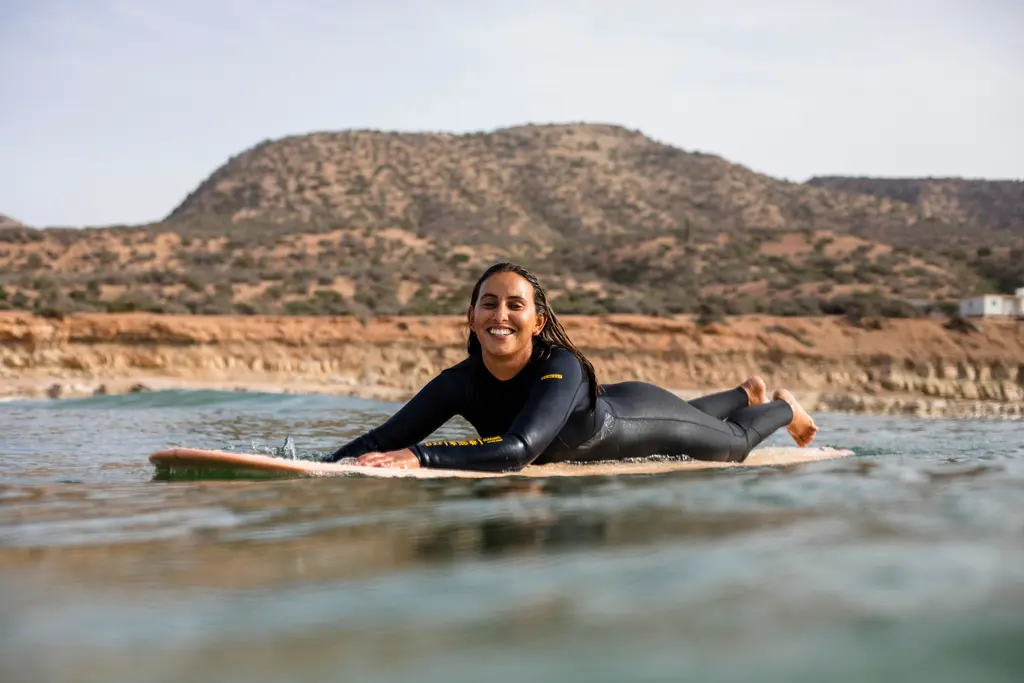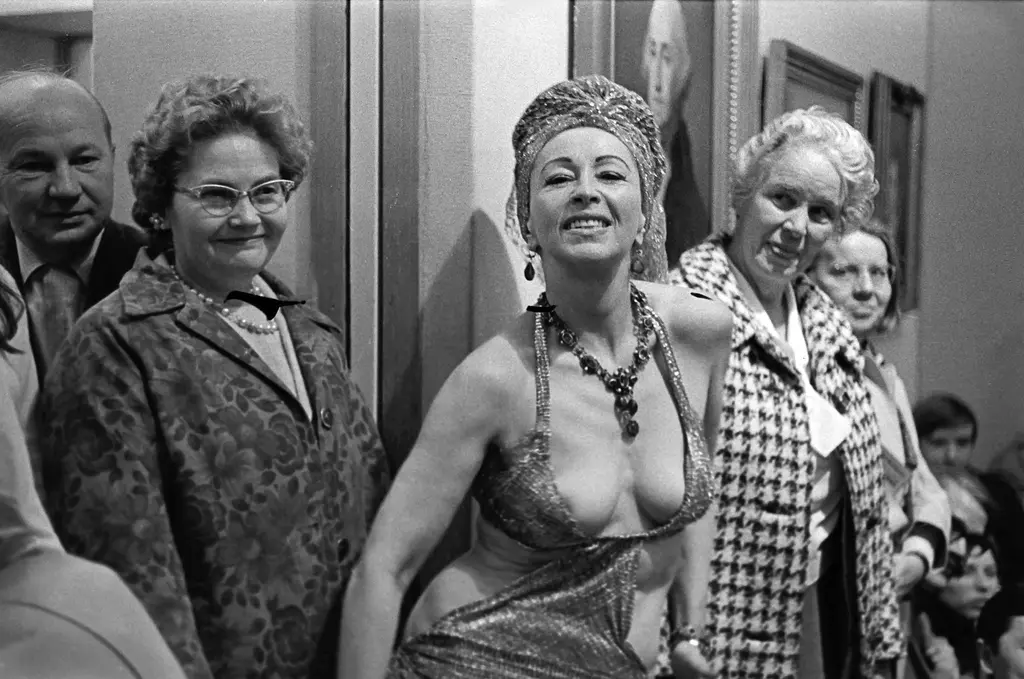Nicola Thost
- Text by Melanie Schönthier
- Photography by Sandra Steh

Every kid needs a hero. And for me that person was Nicola Thost. She was exactly the kind of snowboarder I longed to be, and we had just enough in common to make even the craziest pipedream feel within reach. She was German; I was German. She was a girl; I was a girl. But the style and skill she brought to the table – the way she bolted out the pipe with an aggressive precision that could rival any guy – simply blew my mind.
Not only was Nicola crowned the first-ever Olympic champ during snowboarding’s debut at the 1998 Winter Games in Japan, but she went on to become the first European to win the prestigious US Open later that year – a feat she repeated in ’99 – and was also the first female rider to land back-to-back 720s in contest.
Now, through her new youth project, Sprungbrett (Springboard), she’s placing the gauntlet into even younger hands and helping more kids believe the pro dream is within reach.
In 1999, you were the first woman to ever make the cover of Onboard magazine. What drove you to reach such heights?
Back then there weren’t a lot of girls snowboarding so I looked to the boys for inspiration. I thought, ‘If they can do this, I can do it too.’ This ambition to prove something to myself was always part of my character. I was into gymnastics when I was fourteen… it’s a brutal sport and I would cry at least once a week. You don’t get anywhere without discipline [in gymnastics] and it was the same for snowboarding.
But wasn’t snowboarding more about partying than discipline in the nineties?
Of course I was boozing like the others, but I also got up at eight the next morning and went for a run. […] Not everybody has the necessary self-discipline for this.
Now that most pros have personal trainers, is self-discipline a thing of the past?
I find it sad that the lack of autonomy is growing in our sport. Snowboarding was a lesson in life for me. Nobody told you what time you had to go to the gym, or to bed – you were responsible for yourself. Do you want to win a contest for yourself or because your trainer and sponsor invested a lot of time and money in you?
Last season, you started the Sprungbrett (Springboard) project to foster new talent. But doesn’t a training programme contradict your philosophy that groms should make it on their own?
No, because the sport has changed. Today, snowboarding is a mix of extreme sports and acrobatics and riders invest a lot of time to make it onto the podium, to get cover shots or a main part in a video. By sixteen, most of them have already found their own path and if not, it’s almost too late to jump on the pro train. I want to support kids between seven and fifteen in a different way than the competition circus, associations and sponsors do. With my project, they get to understand the different aspects of snowboarding on their way to turning pro… The kids will be joined by experienced pros, photographers and filmers, all of whom will [teach] them the basics of career management. […] The most promising talents will get wildcards to events like the Red Bull UpSprings. Sprungbrett does not view fostering talent as a duty, but as a long-term chance [that could benefit both the] kids and snowboarding [as a whole].
Do you think there are enough programmes out there fostering young talent?
The problem is not [a lack of] talent – the problem is the training [opportunities]. In Germany there are 155 ski-jump facilities but not a single halfpipe. The German Football Association has invested 610 million Euros in the fostering of new talent [over the past decade]… Of course football is a much bigger [sport], but fostering talent is a puzzle. You need a strong base and great endurance – the fast-moving snowboard business is lacking both.
Your competitive career came to a halt in 2002 due to a knee injury. How has women’s snowboarding progressed in your absence?
What has changed is the perception of women’s snowboarding. We’ve found our niche within the sport – we have our own boards, outerwear, contests, mags and films. A bummer is that girls get less coverage in the big magazines and [instead] hear, ‘That’s what you have your own mags for!’ But everything has advantages and disadvantages. My era was the ‘pretty good for a girl’ era and I’m stoked to have been a part of it.
Do you realise how much of a pioneer you were back then for girls entering this male-dominated world?
For me it started with a little girl standing at the pipe in Ischgl during the first snowboard World Championships in 1996 and asking her brother, ‘Oli, do you think I can do what they are doing?’ […] Do I feel like a pioneer? I think I’m lacking the objectiveness to say so. To me, people like Nicole Angelrath, Terje [Haakonsen] or Jamie Lynn were the pioneers and after my retirement, I knew that Kelly Clark would continue to push women’s snowboarding just like I did for a few years. Passing on the sceptre from one generation to the next – that’s how it works.
Latest on Huck

Maryam El Gardoum is breaking new shores for Morocco’s indigenous surfers
The Amazigh Atlantic — Through her groundbreaking career and popular surf school, the five-time Moroccan champion is helping women find their places in the waves.
Written by: Sam Haddad

Youth violence’s rise is deeply concerning, but mass hysteria doesn’t help
Safe — On Knife Crime Awareness Week, writer, podcaster and youth worker Ciaran Thapar reflects on the presence of violent content online, growing awareness about the need for action, and the two decades since Saul Dibb’s Bullet Boy.
Written by: Ciaran Thapar

Volcom teams up with Bob Mollema for the latest in its Featured Artist Series
True to This — The boardsports lifestyle brand will host an art show in Biarritz to celebrate the Dutch illustrators’ second capsule collection.
Written by: Huck

A visual trip through 100 years of New York’s LGBTQ+ spaces
Queer Happened Here — A new book from historian and writer Marc Zinaman maps scores of Manhattan’s queer venues and informal meeting places, documenting the city’s long LGBTQ+ history in the process.
Written by: Isaac Muk

Nostalgic photos of everyday life in ’70s San Francisco
A Fearless Eye — Having moved to the Bay Area in 1969, Barbara Ramos spent days wandering its streets, photographing its landscape and characters. In the process she captured a city in flux, as its burgeoning countercultural youth movement crossed with longtime residents.
Written by: Miss Rosen

Tony Njoku: ‘I wanted to see Black artists living my dream’
What Made Me — In this series, we ask artists and rebels about the forces and experiences that shaped who they are. Today, it’s avant-garde electronic and classical music hybridist Tony Njoku.
Written by: Tony Njoku

